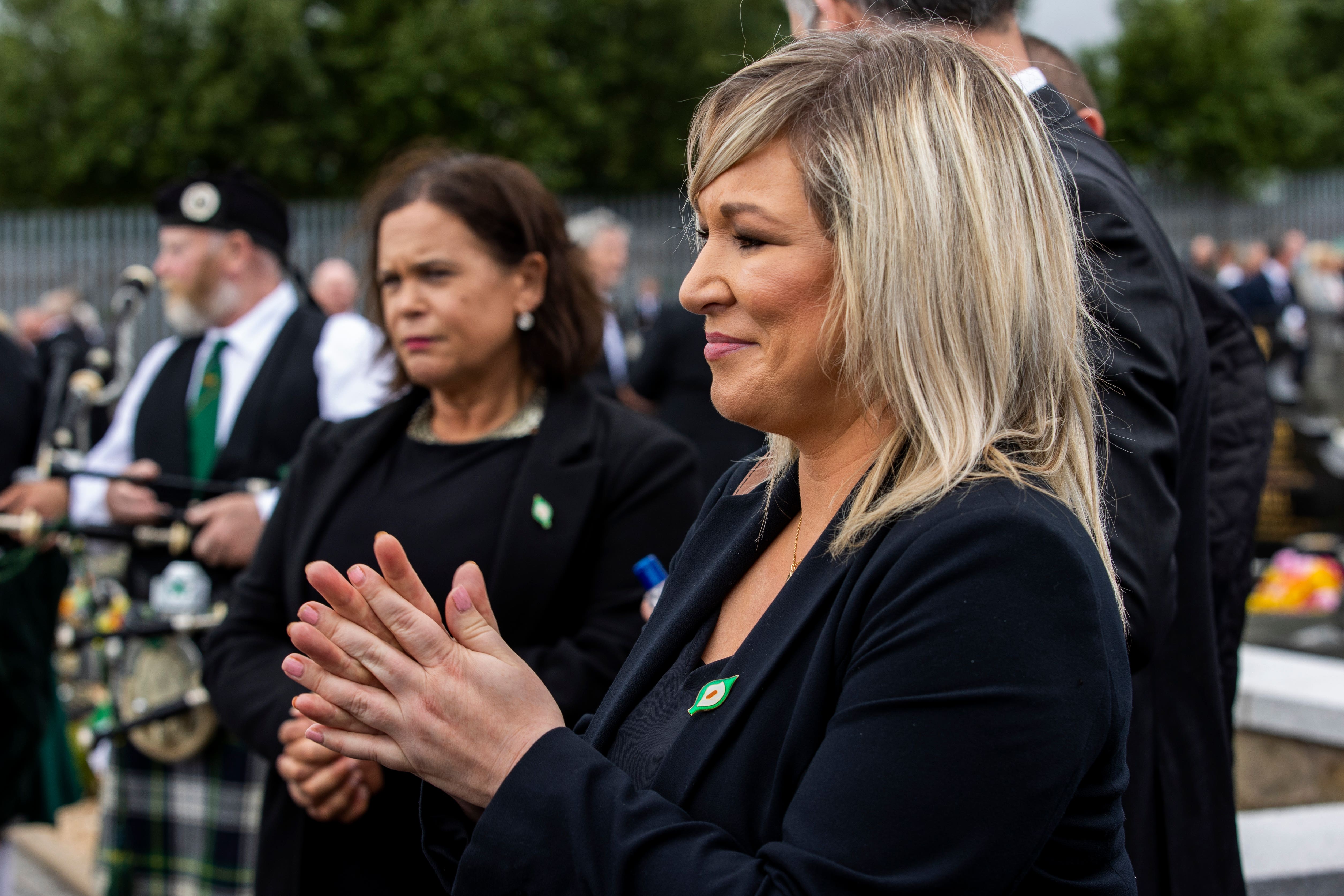Storey funeral ‘undermined confidence in lockdown more than minister disputes’
Former DUP education minister Lord Peter Weir has been giving evidence to the UK Covid-19 Inquiry.

Your support helps us to tell the story
From reproductive rights to climate change to Big Tech, The Independent is on the ground when the story is developing. Whether it's investigating the financials of Elon Musk's pro-Trump PAC or producing our latest documentary, 'The A Word', which shines a light on the American women fighting for reproductive rights, we know how important it is to parse out the facts from the messaging.
At such a critical moment in US history, we need reporters on the ground. Your donation allows us to keep sending journalists to speak to both sides of the story.
The Independent is trusted by Americans across the entire political spectrum. And unlike many other quality news outlets, we choose not to lock Americans out of our reporting and analysis with paywalls. We believe quality journalism should be available to everyone, paid for by those who can afford it.
Your support makes all the difference.The attendance of Sinn Fein politicians at a funeral in Belfast in 2020 had a greater impact in undermining public confidence in lockdown restrictions than disputes between Stormont ministers, the UK Covid-19 Inquiry has heard.
Former DUP education minister Lord Peter Weir also said that a series of meetings in November 2020 when ministers struggled to agree on extensions to lockdown measures was not the Executive’s “brightest hour” in handling the pandemic.
Lord Weir faced questioning at the inquiry about the Executive meetings at a time when the second wave of Covid had hit Northern Ireland and health chiefs had advised extending lockdown measures.
However, there was disagreement among ministers over the measures and the DUP triggered a cross-community vote, effectively giving them a veto over the plan.
Lead counsel for the inquiry Clair Dobbin KC asked the peer: “There was only one community in Northern Ireland for the purposes of the pandemic. Do you agree with that?”
Lord Weir said: “I agree for everything there is ultimately only one (community), we are all a community of human beings. Whether that’s the pandemic or anything else.
“The purpose of a cross-community vote was to try and ensure that decisions had a wide buy-in.
“I think we reached a point in that November, it probably was a certain level of perfect storm, probably the frustration that we weren’t seeing the hopes that had been there from the summer had been dashed and no matter what we did, wasn’t seeming to turn back the tide (of infections).
“I think we reached the point where there was a level of frustration across the board.”
Ms Dobbin said: “Looking back at this, do you regret decision making about such an important issue in Northern Ireland at such a sensitive time ended up being decided in this manner?”
Lord Weir said it would have been preferable if ministers had been able to reach consensus more quickly.
He added: “I think there were other aspects which happened in the political sphere earlier in the year which probably had a much greater level of impact on public confidence than the events of November.”
He was referring to the funeral of senior republican Bobby Storey in June 2020.
The funeral sparked political controversy after then deputy first minister Michelle O’Neill and other Sinn Fein ministers attended despite lockdown restrictions being in place limiting gatherings.
Ms Dobbin said: “The point you would make is that the deputy first minister’s attendance at the Storey funeral, you regard that as having had an impact on public confidence?”
That was a much greater level of undermining of public confidence than what happened in November
Lord Weir said: “From the basis that people look to what example is produced by those who are giving the laws, and if they see a level of divergence from that… people come to a conclusion is it one rule for them, meaning the political class, and is it another rule for the people?
“That was a much greater level of undermining of public confidence than what happened in November.
“Those two or three days (in November) were a very difficult period.
“They were not the brightest hour in the Executive’s handling of things.
“I wish it hadn’t developed the way it had.”